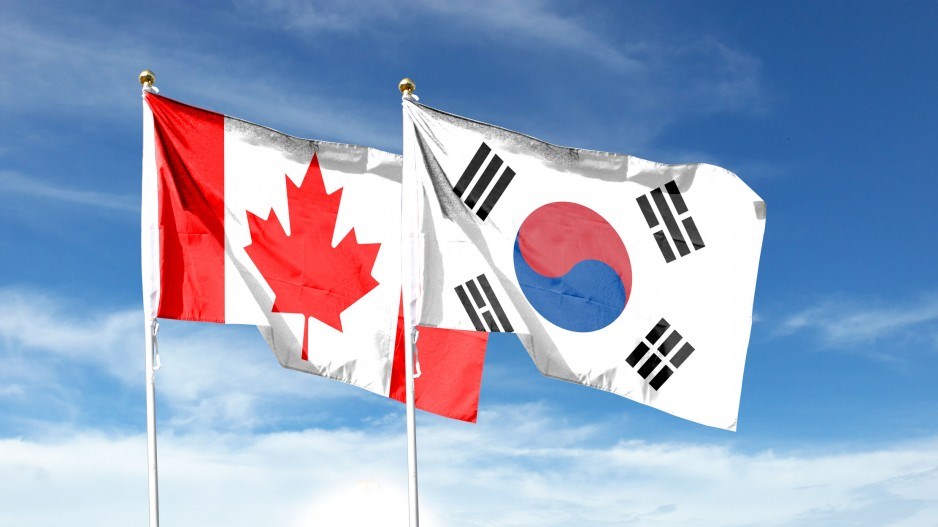Upcoming tariff eliminations or reductions under the Canada–Korea Free Trade Agreement (CKFTA), along with South Korea’s developed e-commerce market, will allow B.C. companies to take advantage of new trade opportunities in the market, according to Korean officials.
Tariffs for all alcoholic beverages, forestry products and most processed food from Canada to South Korea will be eliminated by 2024. And clean tech, cosmetics, information and communication technologies, plastics and pharmaceuticals are areas that are already tariff free.
“Canada-Korea FTA is Canada’s only bilateral FTA with Asian countries. Since CKFTA came into effect in 2015, the trade volume between the two countries has risen by about 70 per cent,” said Jongho Kyun, consul general of the Republic of Korea in Vancouver, at an event at the World Trade Centre Vancouver earlier this month.
“Trade investment with Korea will be a big opportunity for large companies but also small and medium-sized enterprises (SMEs) as it provides abundant opportunities among SMEs by lowering costs to trade their products. However, not so many businesses know how to utilize the CKFTA.”
He said, for example, that there has been increasing demand for B.C. cherries and blueberries in Korea. Under CKFTA, tariffs for Canadian cherries dropped from 24 per cent to 4.5 per cent and will be down to zero next year, giving B.C. growers a chance to enjoy enhanced prices.
Currently, more than 98 per cent of Canada’s exports are eligible for duty-free access to the South Korean market and, upon full implementation of the CKFTA in 2032, 99.75 per cent of Korean tariffs on Canadian exports will be eliminated.
“Traditionally, Korea imports trade products such as oil and copper from Canada and exports passenger vehicles.… Now, Korea and Canada seek to expand the scope of trade to new areas such as hydrogen energy, critical minerals, and movies and games,” said Kyun.
B.C. exported $4,106 million to South Korea in 2022, the highest export level in history and a more than 40-per-cent increase from 2021. The most exported products were copper ore, copper concentrates and coal.
Imports into Canada from South Korea also increased notably in 2022, with top imports including cosmetics, concrete pumps and tractors.
In addition to an ongoing reduction in tariffs, high levels of innovation, a friendly business environment and established e-commerce markets also make South Korea an appealing country for partnerships with B.C. businesses, said John Cha, senior manager at the Korea Trade Investment Promotion Agency (KOTRA) in Vancouver – Korea’s national trade and investment promotion organization.
“The e-commerce industry in South Korea has experienced remarkable growth in recent years, as more consumers prefer to shop online for convenience and the online sales volume in the country … accounts for two per cent of the global market share,” said Cha, adding that the country’s e-commerce market ranks the sixth globally.
“The revenue in the e-commerce market [in South Korea] is projected to reach $85.4 billion by the end of this year,” Cha said. Products in the categories of electronics, clothing, beauty, health and personal household items are notably in-demand, he said.
South Korea and Canada transitioning to greener and more digital economies create areas for future collaborations, particularly in the areas of next-generation semiconductors, next-generation cars, green mobility, green infrastructure and green energy, Cha added.
But Kyun said there are still some barriers both countries need to address to facilitate improved trade: Economic uncertainty, shipping lanes and restoration measures to minimize environmental impacts among them.




